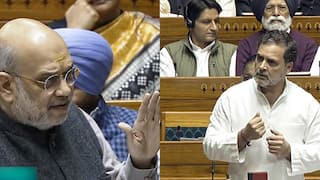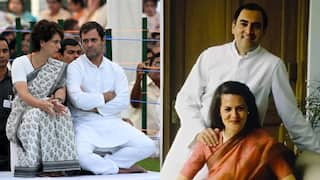'Helpless People In Bengal': Calcutta HC Judge Abhijit Gangopadhyay On Decision To Quit Law & Join Politics
Justice Gangopadhyay did not say which party he would join or whether he would run in the upcoming Lok Sabha election.

Calcutta High Court Justice Abhijit Gangopadhyay on Monday explained his decision to quit law and join politics. Speaking with ANI, Justice Abhijit Gangopadhyay stated that his work in the judiciary is done, and now he wants to serve people."In court, a judge deals with the matters which come before him if a person files a case. But in our country and also in our state, West Bengal, there are a large number of very helpless people. Which I have found. So I have thought that only the political field can give people who want to take steps in respect of those helpless people a chance to act for them," he stated.
"I am going to resign from the post of a judge in Calcutta High Court. For the last two or more years, I have been dealing with some matters, especially education matters, regarding which a huge corruption has been discovered and unearthed. A large number of important persons in the education sector of this government are now languishing in jail, under trial. I felt while doing these matters of labour legislation that my job in this duty of a judge was over," he stated.
#WATCH | Justice Abhijit Gangopadhyay says, "...I am going to resign from the post of a judge in Calcutta High Court. For the last two or more years, I have been dealing with some matters, especially education matters, regarding which a huge corruption has been discovered and… pic.twitter.com/LrFvOlTEye
— ANI (@ANI) March 4, 2024
However, the judge did not say which party he would join or whether he would run in the upcoming Lok Sabha election.
Justice Gangopadhyay, who joined the high court in 2018, was set to retire in five months, in August 2024.
In January 2024, Justice Gangopadhyaya's judicial quarrel with fellow judge Justice Soumen Sen of the Calcutta High Court prompted the Supreme Court to take suo motu cognizance of the two judges' 'order war'.






































